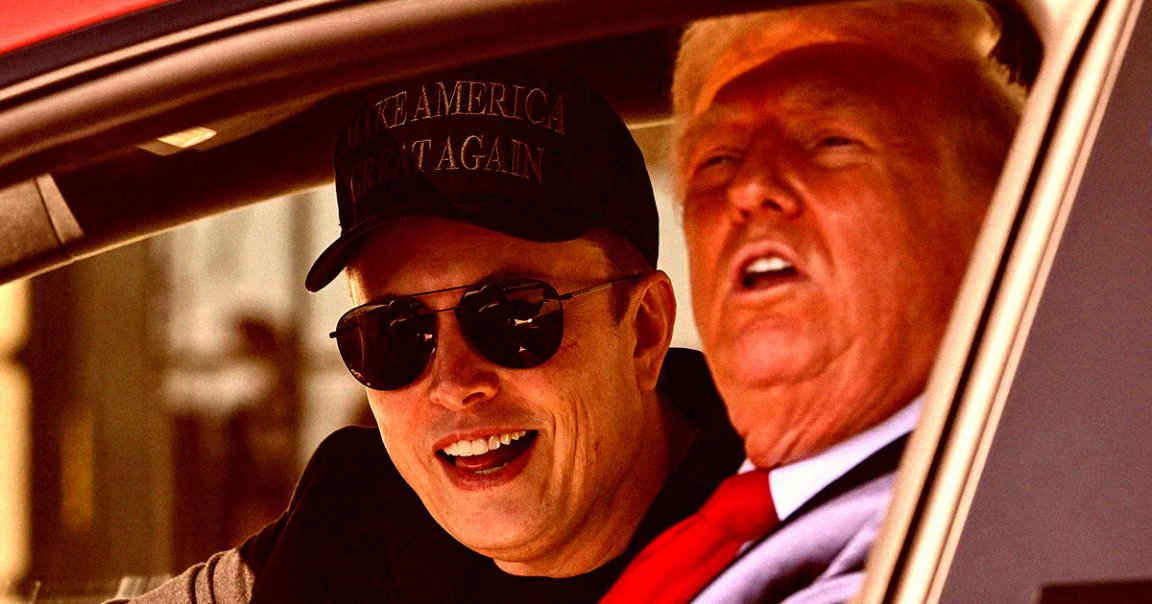
Elon Musk’s carmaker Tesla is widely expected to disappoint with its Q2 earnings report later today.
Demand for the company’s EVs has dried up significantly over the past 18 months, driven in large part by its exceptionally divisive CEO’s efforts to alienate buyers at the exact moment that the company is facing a flood of high-quality international competition.
Deliveries fell a record 13.5 percent this quarter compared to a year earlier — and the accompanying earnings report, which is set to be released this afternoon, could paint an even more dire picture of Tesla’s financials, as CNN reports, highlighting just how far the carmaker has fallen.
Despite plummeting car sales, investors have remained resiliently optimistic, with shares rallying 50 percent since hitting their lowest point this year in April. As Bloomberg reports, profit estimates have plummeted — but shares have rallied in response, highlighting an unusual inverse relationship.
Shares are up over six percent over the last five days leading up to Tesla’s earnings report this week, indicating plummeting revenues aren’t a major concern to investors.
Tesla bulls have also seemingly looked past president Donald Trump’s “big, beautiful bill,” which passed earlier this month. The bill will remove a $7,500 tax credit for US-made EVs, as well as a federal fuel economy incentives program, which generated almost $2.8 billion in revenue for Tesla in 2024.
The waning demand adds even more pressure on Musk’s massive bet on a robotaxi service, which launched in a geo-fenced area in Austin, Texas, last month, opening up the billionaire to criticism that he’s abandoning the carmaker’s core business in favor of going all in on AI and autonomous ridehailing.
But given the chaotic nature of Tesla’s extremely limited robotaxi launch, the carmaker still has a lot to prove. Despite the limited rollout, the robotaxis have already caused mayhem on the streets of Austin, from terrifying close calls to reckless driving and broken laws.
Whether Musk’s vision for autonomous driving will eventually pay off remains unclear at best. For one, critics have pointed out that relying exclusively on cameras — and not radar or LIDAR — is a huge mistake.
Tesla also has steep competition, largely in the form of Alphabet’s Waymo, which has a massive lead over the EV maker and already operates robotaxi services across several major US cities.
In other words, investors will have to subscribe to Musk’s vision of a robotaxi service whether they like it or not. The mercurial CEO previously predicted that millions of self-driving cabs would be hitting the street by the end of 2026, which currently feels like an extreme long shot.
Musk has also claimed that Tesla’s Optimus humanoid robot business would generate obscene amounts of revenue — anywhere up to $10 trillion. But longtime Musk watchers are by now accustomed to hearing him make claims that don’t ultimately come true.
In short, now more than ever before, Tesla’s market value has become a litmus test of how confident investors are in Musk and his personal vision for the tarnished brand.
And now that he’s had a massive falling out with the president, announcing he would be creating his own political party — a move that itself left investors largely unimpressed — the pressure is on.
“The Tesla story is about Musk,” Integrity Asset Management portfolio manager Joe Gilbert told Bloomberg. “If he can give confidence to the market that he is re-focused on robotaxi and the brand, the stock can work.”
More on Tesla: Waymo Responds to Elon Musk’s “Schlong Map” by Showing That Theirs Is Bigger